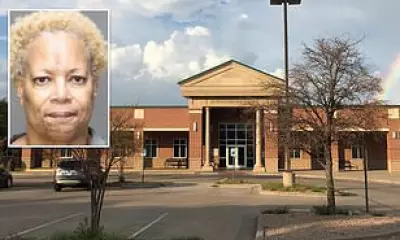
An American woman who swapped the Texan sun for the Manchester rain has shared her hilarious bewilderment over four common British phrases that continue to baffle her.
Ashley Jackson, 42, relocated to the UK after marrying a British man, and while she expected a climate adjustment, she didn't anticipate the linguistic culture shock.
The Four Britishisms That Stumped a Texan
Ashley took to TikTok to detail the specific terms she just can't get her head around, even though they are everyday language for Brits.
1. People carrier
The first phrase that caught her off guard was 'people carrier'. Ashley explained that when her husband first visited Texas, he suggested the group get a 'people carrier' for a night out. The term was met with blank stares and amusement from her American friends, who found its literal description both funny and charming.
2. Swimming costumes
Next on her list is 'swimming costumes'. To Ashley's American ears, this term sounds like something from a fancy dress party. She admitted it makes her giggle, imagining superheroes in 'swimming costumes'. However, her children have now adopted the phrase, making it a permanent part of her new household vocabulary. In the US, the common term is 'bathing suits'.
3. Candy floss
The sweet treat known as 'cotton candy' in the States is called 'candy floss' in Britain. Ashley pointed to her teeth with an amused expression, questioning the 'floss' part of the name. The UK term dates back to the late 19th century and describes the wispy, floss-like nature of the sugar confection. In contrast, the American name 'cotton candy' was adopted after the treat was introduced at the 1904 World’s Fair in St. Louis, Missouri, due to its resemblance to raw cotton.
4. Wheelie bin
Finally, the humble 'wheelie bin' provides a source of amusement. While the name seems perfectly logical to Brits for a bin on wheels, Ashley finds it hilarious to say. She noted that in the US, the same object is simply called a 'trash can', but she concedes that 'wheelie bin' has a certain cute charm.
Why Are British and American English So Different?
The divergence between British and American English began when English settlers arrived in America in the 1600s. Separated by the Atlantic Ocean, the two dialects evolved independently.
American English absorbed influences from Native American languages and immigrants speaking Dutch, German, Spanish, and French. Meanwhile, British English was shaped by languages from Europe and across the British Empire.
In the early 1800s, Noah Webster, of Webster’s Dictionary fame, sought to create a distinct American identity. He changed spellings, simplified grammar, and promoted American usages. Furthermore, as the two nations developed different inventions, foods, and institutions, new words emerged, and existing words took on different meanings.
Accents, media, technology, and regional slang have all continued to widen the gap between the two dialects, leading to the amusing misunderstandings experienced by expats like Ashley Jackson.






